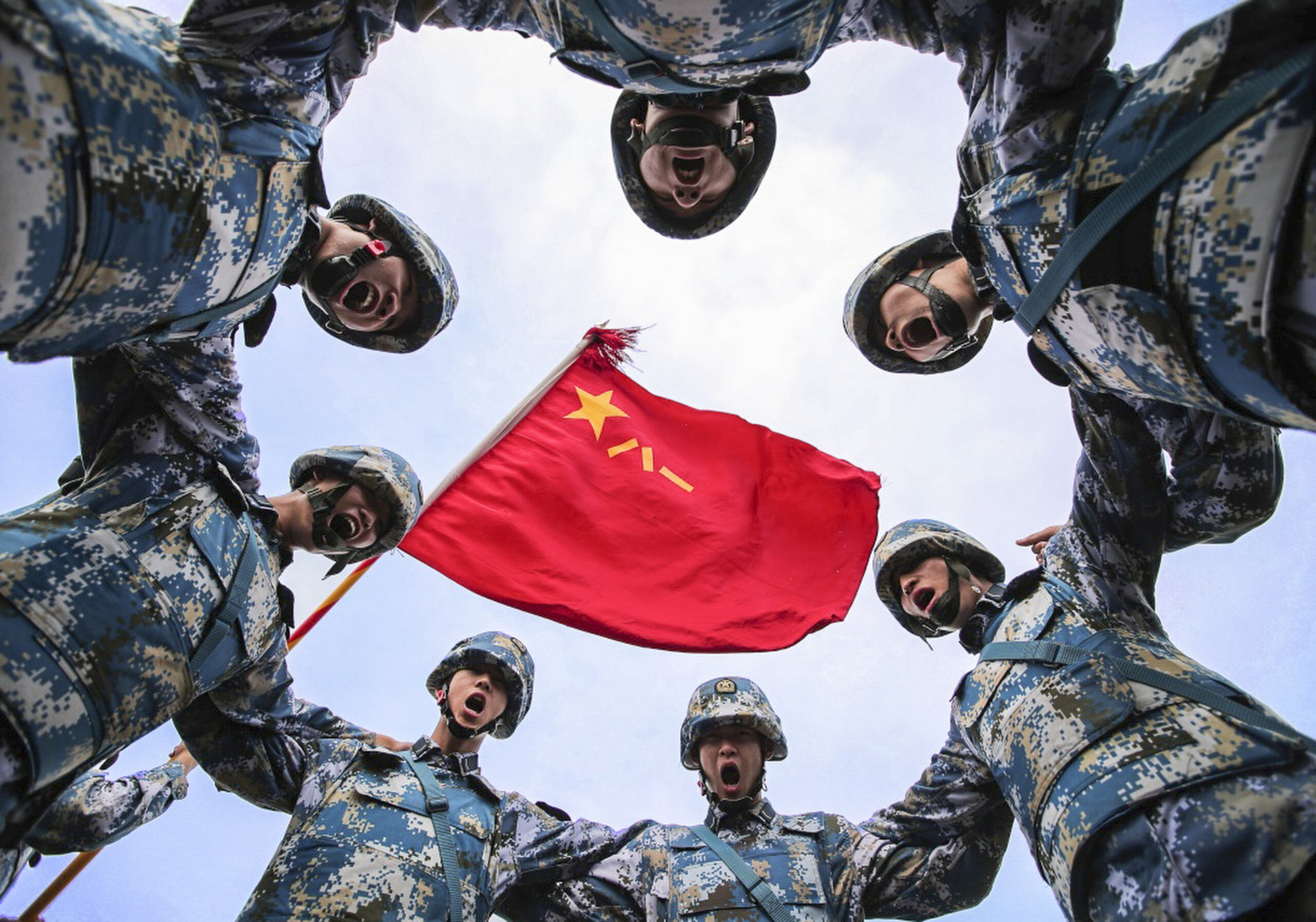by Martin Haffner Associate Editor
In a significant escalation of tensions in the Taiwan Strait, China has commenced extensive military exercises in proximity to Taiwan, amplifying concerns over regional stability and security. The drills, which include air and naval maneuvers, have been framed by Beijing as a necessary response to perceived provocations from Taiwan and its allies, particularly the United States.
The Chinese government has ramped up its rhetoric, with officials derogatorily referring to Taiwan’s president, Tsai Ing-wen, as a “parasite” — a term meant to underscore what China perceives as her reliance on foreign support, notably from Washington. This language reflects China’s overarching strategy of undermining Tsai’s legitimacy and sovereignty claims, as it views Taiwan as a breakaway province that must be reunified with the mainland.
Military Drills Explained
The recent military exercises, which commenced 24 hours ago, involve a series of coordinated actions featuring fighter jets, warships, and missile systems. These drills not only serve as a show of strength but are also strategically meant to intimidate Taiwan and deter any potential declaration of independence. China has a history of conducting military exercises in response to key events in Taiwan, such as elections or visits from foreign officials, which Beijing sees as challenges to its authority over the island.
The scale of these drills is unprecedented in recent years, with reports indicating that hundreds of aircraft and numerous naval vessels have been mobilized for the exercises. The drills are taking place in airspace and waters that are strategically vital to both regional security and international shipping routes, raising the stakes considerably.
International Response
The response from the international community has been one of concern. The United States, a key ally of Taiwan, has reiterated its commitment to supporting the island’s defense capabilities. In light of China’s aggressive maneuvers, Taiwan has called for increased defense spending and is seeking to bolster its military preparedness, highlighting the island’s determination to maintain its sovereignty.
Taiwanese officials have condemned China’s military drills, asserting that they are a direct threat to peace and stability in the region. In response to the “parasite” comment, a spokesperson from Tsai’s administration emphasized that Taiwan will continue to stand firm against coercive tactics and maintain its democratic way of life.
The Road Ahead
As both sides navigate this complex and volatile situation, the potential for miscalculation remains. Analysts warn that the growing military presence in the region could lead to inadvertent clashes, further complicating the already delicate balance of power in East Asia. The drills might also provoke a stronger military response from the United States and its allies, prompting a robust diplomatic dialogue aimed at de-escalation.
As China aims to assert its dominance in the region, the future of cross-strait relations looks increasingly fraught. With Taiwan’s leadership standing firm against Beijing’s overtures and provocations, the international community watches closely—a stark reminder of the enduring conflict over Taiwan’s status and the ever-present challenges of geopolitical rivalry in the Asia-Pacific.
In summation, as tensions continue to mount with dramatic military displays and combative rhetoric, all eyes remain on Taiwan—both as a potential flashpoint for conflict and as a symbol of resilience against authoritarian pressures. The coming weeks and months will be critical in determining the trajectory of the situation and the broader implications for regional and global security.



